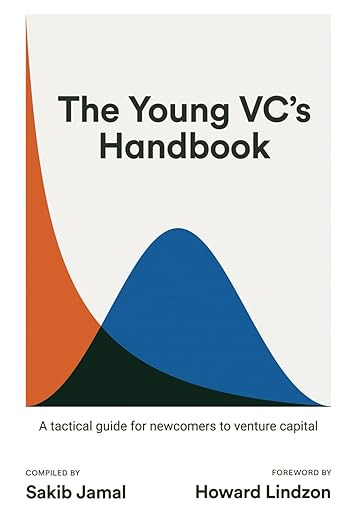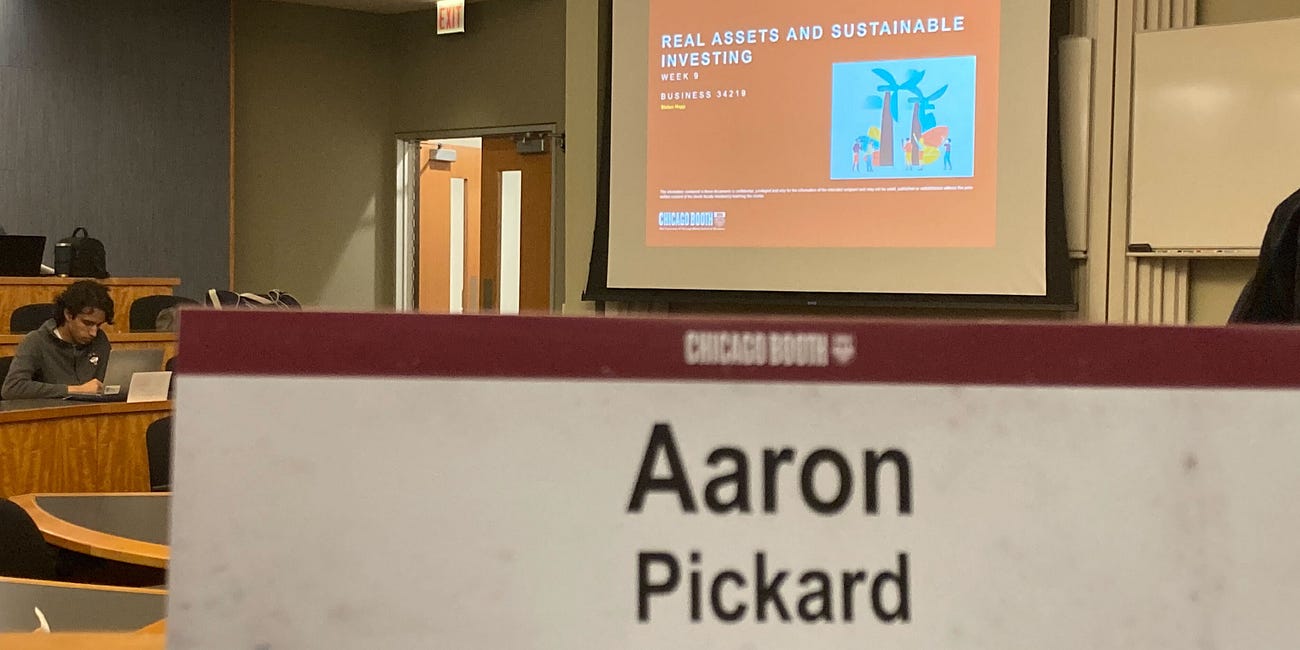My job search just wrapped up, and I’m delighted to have found my next opportunity. I’ll share more about it in due course.
Right now, I’m focused on my move to Silicon Valley this weekend.

This week, I’m sharing a collection of the resources I found particularly useful during my recruiting process.12
Baseline Knowledge
These are resources I encountered that I’d recommend for somebody considering whether or not they’d like to pursue opportunities in venture capital.
Books
Media Review: The Young VC's Handbook
Happy National Read a Book Day! To celebrate the occasion, I’m writing about The Young VC’s Handbook.
Media Review: Private Capital
On Thursday afternoon, I heard the last lecture of the last course of my MBA.
Articles
Other
This is another collection of resources that’s a really good place to start in terms of figuring out what do VCs do
My view is that understanding SAFEs is de rigueur because they’ve become quite common both for early-stage financing rounds, and as bridge financing in later-stage companies.
Interview Preparation
Having decided to pursue VC, I think a different set of resources may be more useful to prepare for hiring conversations.
Some resources are marketed specifically for interview preparation, and these are excluded since I didn’t use them.
My general approach to preparing for specific interviews was iterative, and it ended up as follows:
Check news websites for fund-specific sector/stage fundamentals and news.
Spend some time on the website and social media profiles (LinkedIn, X, Substack, Medium) of the firm and interviewer.
Write down 2-3 questions to ask if time permits.
Study the firm’s portfolio. Find at least one investment I like, and one that I don’t.
Find a startup that meets the fund’s investment criteria to mention during the interview or maybe in the thank you note.
Review VC industry fundamental concepts.
Every conversation is an interview — if it’s not for a role right now, then it’s a screen for the future, or to provide access to the other person’s network.
Books
Media Review: Venture Deals
Here’s the bottom line up front: I’m convinced that Venture Deals: Be Smarter Than Your Lawyer and Venture Capitalist by Brad Feld and Jason Mendelson is a critical text for anybody involved with startup financings.
Articles
Other
Peter Walker’s X (or LinkedIn)
Building Taste
Once I started getting interviews, I figured out quickly how important it was to build a sense of what an “investable” startup looks like.
This might be easier for angel investors or former employees at unicorns, but there’s no guarantee that the startups an investor engages with will be great in the same way. It’s important to develop taste, and start to figure out what sorts of startups have VC-scale potential.
This has to start ASAP because the process takes years. That judgment is why investors in VC funds pay management fees and carried interest.
Internships
I believe the best way to build taste as an investor is to see investment opportunities, participate in investment processes, and learn from what works — as well as what doesn’t.
During the course of my MBA, I spent significant time with two funds. Both were formative experiences and have shaped how I think about investing in startups:
Dorm Room Fund is a tech sector-agnostic pre-seed fund, and recruits student investors on an annual cadence
MFV Partners is a deep tech-focused pre-seed through Series A fund, and I was connected to it through a class application at my school
I generally hate the concept of unpaid internships, or working for free. I think it’s unjust, biased against those without connections or the capital to afford it, etc. However, VC is such a competitive industry that it can be a tool ambitious people use to differentiate themselves.
One caution: I advise strongly against paying anybody to intern for them.
Books
I had a virtual coffee chat with a Partner at a deep tech fund earlier this year who made a point that I found compelling.
He said that the role of an investor is to recognize what a company that will become great looks like as early as possible. Therefore, a VC should study great entrepreneurs and businesses (across sectors, geographies, history, and so on) in order to build taste.
As a result, I can’t curate list of books as much as a recommendation to read histories of firms and products, as well as biographies of entrepreneurs, investors, and other leaders that are subjectively compelling and diverse.
Other
Mike Annunziata’s Substack
He’s a solo GP and an excellent, concise writer who publishes weekly about topics he encounters in early-stage deep tech investing
Maggie Gray’s Substack
She’s an investor at Shield Capital, and shares great long-form content about her firm’s focus areas (defense tech, AI, cybersecurity) on a monthly cadence
Adam Draper’s Substack
He’s a GP at Boost VC, a pre-seed deep tech fund. He writes both about building his fund and deep tech sectors.
List of resources for people interested in fintech
At Chicago Booth, I recommend the following MBA courses:
Accounting for Entrepreneurship
Entrepreneurial Finance & Private Equity
Institutional Private Capital Investing
PE/VC Lab
Do the job to get the job
VC’s a really interesting recruiting journey because it’s a job you can start doing before anybody pays you for it.
Key ways to do the job to get the job that I’ve seen work for my friends and classmates include:
Refer excellent startups to funds
Help founders in your network with whatever they need help with
Produce great content
Most funds I spoke with wanted to see a work sample at some point in the interview process, either something of my own design or in response to a prompt they gave.
This list reflects my general interest in looking for work during my job search: my ideal was a VC fund investing in or adjacent to deep tech, though I was open to serendipitous opportunities throughout the venture and private markets landscape.
This list also reflects my views on the right way to share information. Learnings are useless if they don’t get to those who need them most. That manifests itself in two ways:
First, I prefer to recommend free resources (except for books, legacy media subscriptions, and university courses which are customarily paid for).
Second, I intend to keep this Substack free.
I used PitchBook because Booth gives students subscriptions. Alternatives like CrunchBase and CB Insights should work just as well — it’s just that I don’t have a subscription to either one.








Congrats! And thanks for the resources!